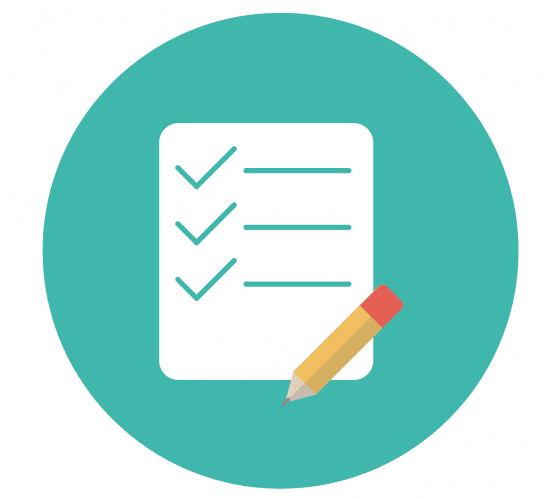Home Articles Web design & development Web content management systems
When you think about getting a new website developed – how you manage and update it may not be something you consider. However, this will have the biggest impact once your new website is live. Keeping your website secure and engaging, long after it has launched, will depend on how easy it is to maintain, and this will be largely down to the content management system (CMS) you select.
What is a content management system?
A CMS is a framework that developers use to build a website, but it is also what you use to manage and update content on your website. The benefit of having a CMS to manage your website is that you don’t need technical skills to do it. You can add images, content and create new pages – all using a simple admin panel – no developer knowledge is required. You can easily update your website, rather than having to go back to your development company every time, which could prove costly.

What are the benefits of a good CMS?
Not only does a CMS mean you can easily update and add content to your website, it also provides a level of control. Those managing the website can control who can change the website and approve content before it is made live. This allows administrators to check what content is published and enforce consistency and quality across the website. Content will be on-brand and the website will provide users with a consistent look and feel.
The CMS also sets parameters by restricting major changes to be only done by a skilled developer. For example, changes to templates, web fonts and key functionality. It means that these key elements remain consistent across the website and not accidentally changed.
How do I select a CMS?
Selecting a CMS that is easy to use, and well-supported means that you are more likely to keep your web content updated. It is the system you will use to maintain your website, so do your research and speak to your developers to find the right one. There are many options and considerations when it comes to deciding which one is right for you.
- Who will be maintaining the website? Having the freedom to give admin rights to certain individuals is a great advantage to make sure your website is regularly updated with fresh, new content. However, you also need to retain a level of control. For example, you may want to give users access to post news items or update certain pages, but not the ability to change menus or core pages. Select a CMS that allows regular updates to be made to the website and gives you the control to restrict certain areas.
- How often do you expect to be updating your website? A well-maintained website will engage visitors and encourage them to return time and again. Think about what content you will be updating regularly and general maintenance you will be carrying out. Looking at the tools – does the CMS make this work easy? Can you do everything you need to without having to go back to your developer? Getting this right now will save time and money down the line.
- What functionality do you need? A content management system provides the functionality you need for your website. For example, do you need e-commerce capabilities, or to include contact forms on your website? You may even need to add some bespoke functionality specific to your requirements. If you are clear what you need the website to do, you can choose the right CMS for the job.
- What plans do you have for the website? If your business strategy means you want to add additional functionality to your website in the future – check that your CMS gives you the flexibility to do this cost-effectively.
- Is the CMS popular with a large community? Check how popular the CMS is and what support is available. Are there online forums and help groups you can turn to should you have a question or issue to resolve? Are there lots of developers experienced in working with the CMS? Having the support of a large community for your chosen CMS is very useful if you need help developing your CMS or have an issue to resolve. For example, a popular CMS, such as WordPress, will often have bugs identified and fixed quickly, and people will be developing new plugins for it all the time.
Make the most of your CMS
You may not be planning to get a new website any time soon, so changing your CMS isn’t an option. Instead, talk to your development team about optimising your current CMS to work better for you and make managing your website easier.
The development team can review the website and it’s admin area, from a technical perspective and usability perspective. An optimised system should:
- Only have the functionality required and nothing else, to make it as lean as possible.
- Include instructions or guides. This may come in the form of training, or on the system itself. For example, our CMS includes minimum and maximum image size suggestions for certain areas, to optimise the system.
- Use language you are familiar with. From menu items to drop-down lists, everything should be clear to you and you should understand what it all does.
- Be easy to update. When you upload content, it should be easy to do, especially for regular tasks. And it shouldn’t have any negative knock-on effects on the page. A well-built website will optimise the content in the space, displaying it clearly on any sized device.
So when you are next updating your website, make note of everything that is frustrating or could be improved. Report it to your development team and see if they can help. Even the smallest change could help save you time and make updating your website easier.

Is it a secure CMS?
It has never been more important for website owners to be responsible online – that means keeping their web security up-to-date. Choosing a secure CMS is another layer of protection to protect your customer data and your company reputation.
- Find out if there are security updates available for the CMS and how often it needs updating.
- Check if updates are included in your hosting package. It helps if they’re carried out by a professional who will test the websites updates have been made correctly.
What do we recommend?
There are many CMS options available. WordPress is one of the most popular and one that we recommend to our clients due to how easy it is to use and the functionality it offers. But if you still need additional functionality, we can customise existing plugins, build news ones and even build a bespoke CMS, if required.
If you would like to discuss your CMS or need advice on updating or migrating to a new one, please get in touch. Complete our contact form via our Contact page or email hello@alberon.co.uk or call us on 01865 794009.